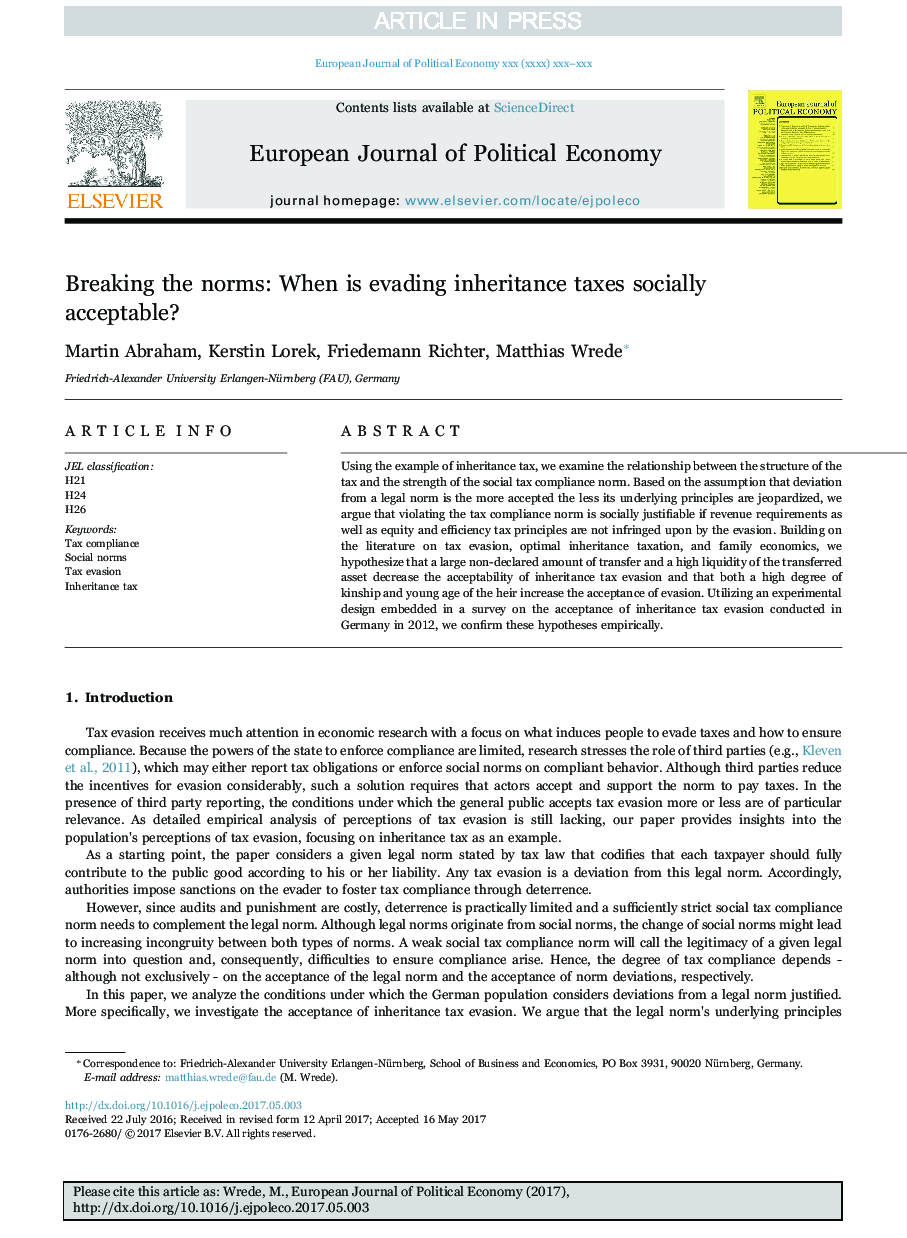| Article ID | Journal | Published Year | Pages | File Type |
|---|---|---|---|---|
| 7351779 | European Journal of Political Economy | 2018 | 18 Pages |
Abstract
Using the example of inheritance tax, we examine the relationship between the structure of the tax and the strength of the social tax compliance norm. Based on the assumption that deviation from a legal norm is the more accepted the less its underlying principles are jeopardized, we argue that violating the tax compliance norm is socially justifiable if revenue requirements as well as equity and efficiency tax principles are not infringed upon by the evasion. Building on the literature on tax evasion, optimal inheritance taxation, and family economics, we hypothesize that a large non-declared amount of transfer and a high liquidity of the transferred asset decrease the acceptability of inheritance tax evasion and that both a high degree of kinship and young age of the heir increase the acceptance of evasion. Utilizing an experimental design embedded in a survey on the acceptance of inheritance tax evasion conducted in Germany in 2012, we confirm these hypotheses empirically.
Related Topics
Social Sciences and Humanities
Economics, Econometrics and Finance
Economics and Econometrics
Authors
Martin Abraham, Kerstin Lorek, Friedemann Richter, Matthias Wrede,
